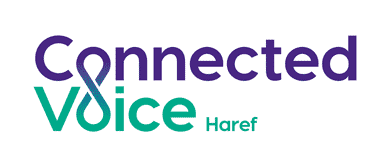Our Impact
Working with communities
Here are a few of the ways we're currently supporting our local ethnically marginalised communities around health equity:
Health Information Sessions
Currently, we are working with the Haref Network to identify top health priorities and with the network to establish health topics on which they are able to deliver health information sessions or want to work to improve health messaging. We have already begun to pair up network members and allies to run some of these sessions which will range from one off events to recurring meetings.
Accessing 999/111 Services
Haref has been working with NEAS (North East Ambulance Service) to improve information that is shared on how to access and use emergency services. Following conversations our Development Officer was having with Network members about 999/111 services and after attending an NEAS training with Loveness Scott, it was clear there was a need for more information about these services. Importantly, not everyone knows that these services are free to everyone and that interpreters are available upon request.
Haref worked with NEAS to create a leaflet which provides concrete information about emergency and urgent care services and has information about accessing it in other formats and languages. These is information in Arabic, Bengali, Polish, Czech, Romanian and simplified Chinese.
Ramadan Calendars with safe fasting messages
Each year we work with 11 mosques across Newcastle, Gateshead and North Tyneside to design and deliver Ramadan Calendars with key fasting information for people with diabetes and glaucoma. We also develop generic Ramadan calendars which are shared with health services, statutory services and community organisations. We work with NHS Diabetes Centre, Glaucoma UK and Diabetes UK to get the right health information relating to fasting. See our 2022 calendars
In 2021, after Ramadan, we completed an evaluation with the mosques about the calendars, as we were interested to know how the calendars worked in a digital format, and how the health information was used. We're really pleased with the positive feedback we received. The helpful comments meant we can make improvements to our calendars in future years.
Collaborative work: Haref / Connected Voice Advocacy / InvolveNE
After many organisations and community groups described to us the difficulty in navigating the NHS, understanding rights and entitlements to treatment, and choosing the most appropriate health service to use, we partnered with Involve NE and Connected Voice Advocacy service to put on facilitated sessions. We did two sessions with organisations supporting refugees and asylum-seekers where we looked at the structure of the NHS, explained refugee/asylum-seeker rights to health, and looked at the help available if someone’s health needs are not being met
Research
Connected Voice Haref has led on and participated in a number of important research projects over the last 18 months:
Health Inequalities in the Age of COVID-19-Towards Fairer Health for Disadvantaged Communities
Haref partnered with Riverside Community Health Project, Newcastle University, and an independent researcher to complete this research project looking at effective health messaging through the lens of COVID-19. 11 community partners working or living in the west end of Newcastle developed the research and undertook this project in their communities. This research looked at the ways of getting health information, including how to use the NHS and avoid illness, to people who need it most and have greatest difficulty accessing it.
Peer research mental health project ‘Experiences and thoughts of mental health’
Our peer research project was commissioned by Newcastle Healthy Futures. Connected Voice Haref coordinated the project while Fulfilling Lives Newcastle Gateshead provided peer research training. Four organisations (Rainbow Home. First Step, Riverside Community Health Project, West End Friends) provided members of staff and peer researchers to design and implement the research. The peer research team was involved in all aspects of the project, from designing questions, developing methods, collecting responses, and analysing the data.
Haref will be looking at the recommendations and working with health services and the Haref Network to implement the key ones.
Peer Research on Mental Health in Our Communities - Full Report
A qualitative investigation exploring barriers and facilitators to accessing medication reviews from the perspective of people from ethnically minoritised communities
Connected Voice Haref collaborated with Newcastle University School of Pharmacy in this NIHR funded research. Regular reviews of medications, including prescription reviews and adherence reviews, are vital for people to gain maximum benefit from their medicines and optimise their health. Despite being more likely to report a long-term illness that requires medication when compared to their white counterparts, individuals from ethnically minoritised communities are less likely to engage with regular medication reviews, with inequalities negatively affecting their access.
‘The doctor focus only on the symptoms and the suitable medicine for helping me, but no one focuses on the medicine, if it is related to certain foods, then this can be a big problem for Muslim culture and Muslim religion… we might not take it, we might not want to discuss further with them… that is our beliefs.’
Long COVID research
We have partnered with Sano Genetics on a new research opportunity for patients with Long COVID (ongoing or recovered), which will explore if genetics impact symptoms and recovery.
Our work through the pandemic
COVID-19 support and health messaging
During the pandemic we worked in partnership with local authorities and health services to ensure people got the right information in the best context and format for them. We linked members of Haref Network to Newcastle City council and Gateshead council and helped them develop community language videos key messages for staying safe.
We inputted into the Communities COVID-19 response meetings and supported the Community Champions meetings. We feedback issues that we heard from the Network to the public health teams.
We shared relevant information through our bulletins and by email n to all our Haref contacts to support practitioners and individuals on key and changing messages.










